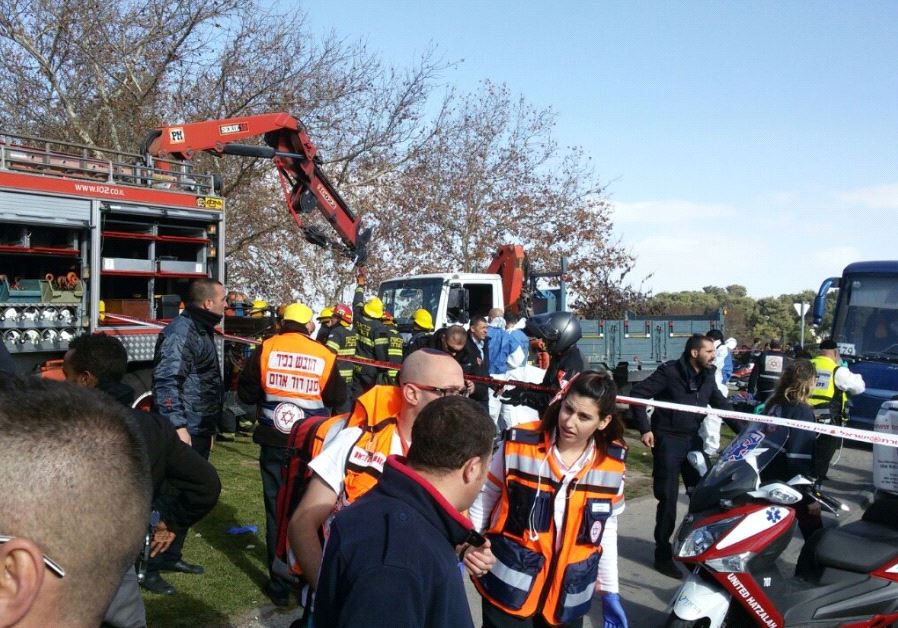Working feverishly together to aid the wounded soldiers
MDA, Hatzalah and ZAKA first responders pooled resources to act as quickly as possible at the site of Sunday’s attack.
 Scene of suspected ramming terror attack in Jerusalem, January 8, 2017(photo credit: MAGEN DAVID ADOM)
Scene of suspected ramming terror attack in Jerusalem, January 8, 2017(photo credit: MAGEN DAVID ADOM)